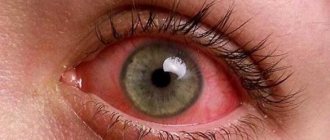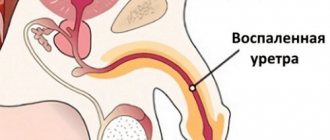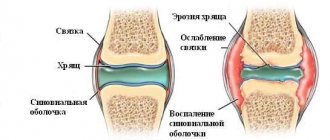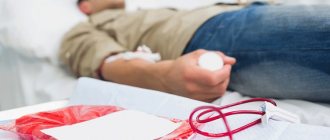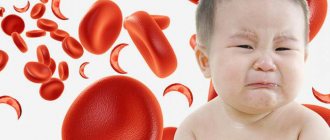Every person may one day experience bleeding from the anus, and this causes terrible discomfort, unpleasant sensations, and is also a symptom of a possible disease.
Many people do not immediately seek the help of a doctor, under the pretext “it’s not scary”, “maybe it will go away on its own”, “too intimate to share with medical staff” and so on.
However, if you experience bleeding from the anus, even a small one, you need to contact a proctologist as soon as possible.
There are many reasons for the occurrence of such a symptom, only a doctor will help you understand various pathologies, because it is very important to know what is happening to your body and how you can help it.
Why does bleeding occur?
There are many reasons why bleeding from the anus is possible. Among them the following main groups can be distinguished:
- acute proctological diseases (acute anal fissure, thrombosis of hemorrhoidal vessels);
- chronic proctological diseases (chronic hemorrhoids, chronic anal fissure, rectal prolapse);
- chronic diseases of the small and large intestine (UC or ulcerative colitis, Crohn's disease);
- chronic diseases of the stomach and duodenum (chronic peptic ulcer, hemorrhagic gastritis);
- cancer of any part of the gastrointestinal tract.
It should be noted that bleeding from the anus may vary in color and consistency .
If the blood comes from the upper parts of the gastrointestinal tract, the stool will be black (due to the interaction of blood hemoglobin with hydrochloric acid), from the upper parts of the intestine it will be dark, possibly with clots, and from the lower parts it will be bright scarlet. Each of the diseases has its own specific symptoms and manifestations, which need to be considered in more detail.
Treatment
Despite the fact that most diseases that are accompanied by anal bleeding do not pose a threat to human life, it is still worth consulting a doctor. He will prescribe comprehensive treatment.
The main drug therapy is rectal ointments and suppositories. They contain zinc oxide, titanium or bismuth. Particularly effective are medications such as Relief Advance, Proctosan and Proctosan Neo. Patients with constipation are also prescribed laxatives (Guttalax or suppositories with glycerin).
Important! If bleeding is caused by diseases of the gastrointestinal tract, they must be treated with appropriate medications.
Treatment with folk remedies
Along with medication, you can use folk remedies. The most effective methods are:
- Calendula infusion is used for microenemas and washings. 2 tbsp. l. pour a glass of boiling water over the flowers, leave in a thermos for 3-4 hours and squeeze.
- Chamomile infusion for microenemas and lotions. 1 tbsp. l. pour a glass of boiling water over the flowers, leave for about an hour, then filter. For bleeding, do microenemas three times a day, lotions 5-6 times.
- Yarrow decoction not only stops bleeding, but also has a bactericidal effect. 1 tbsp. l. pour a glass of boiling water over the raw materials and boil over low heat for 15 minutes. After cooling, strain and add enough boiled water to obtain the original volume. Use as enemas or lotions on external nodes.
- Oak bark has astringent, anti-inflammatory and wound-healing properties. 2 tbsp. l. crushed oak bark (dry) and 1 tbsp. l. horsetail leaves and valerian root pour 0.5 liters of boiling water. Simmer in a water bath for half an hour and leave for at least 6 hours (it’s better to do it overnight). Strain the broth and use for microenemas, baths or compresses.
Important! Before using folk remedies, you should consult a specialist.
So, blood during bowel movements in women is a dangerous sign. It is best to immediately contact a specialist who will help determine the cause and prescribe appropriate treatment.
Acute proctological diseases
Acute diseases of the anus are usually accompanied by severe pain due to the involvement of the rectum in the pathological process. The disease develops against the background of excellent health, but frequent constipation or diarrhea may precede the disease.
The pain constantly increases and increases with the act of defecation , during which a small amount of bright scarlet blood is released. Typically, all these symptoms are observed with thrombosis of hemorrhoidal vessels - this is a complication of chronic hemorrhoids.
The reason is compression of prolapsed nodes, their damage, inflammation and the formation of blood clots in them. In this case, it is necessary to consult a doctor as soon as possible and begin appropriate treatment, because these blood clots can enter the general bloodstream and cause serious complications.
Blood may also appear in small quantities when an acute anal fissure occurs, which appears suddenly and is characterized by the presence of burning pain radiating into the surrounding tissues, as well as spasm of the anal sphincter.
How to treat bleeding from the anus
In order for the patient’s suffering to end, already at the first unpleasant symptoms it is necessary to make an unscheduled appointment with a proctologist, undergo a full examination of the gastrointestinal tract, and determine an intensive care regimen. The approach to the health problem is comprehensive, and simultaneously includes nutritional correction to prevent constipation and the use of rectal suppositories to reduce the inflammatory process and the accompanying pain syndrome. Here's what knowledgeable experts advise:
- To get rid of an anal fissure, it is important to use not only regenerating preparations in the form of ointments and gels, but also to make certain changes to the daily diet - enrich the menu with foods high in fiber.
- If conservative treatment methods for diverticulosis do not provide positive dynamics, it is recommended to consent to surgery, thereby excluding serious health complications.
- It is better to remove polyps by surgical methods, since after long-term conservative treatment there is a high probability of their reappearance in the anus with an exacerbation of the pathological process.
Chronic proctological diseases
Very often, blood can come from the anus due to the presence of chronic hemorrhoids. This is a very common disease associated with the presence of enlarged and engorged hemorrhoidal veins. Provoking factors may be constant constipation, pregnancy, working in an upright position, or heavy physical labor. Patients complain of itching in the anal area, discomfort and the discharge of dark scarlet blood during or immediately after defecation. Hemorrhoids can also fall out due to excessive physical stress.
Most often, women bleed from the anus due to the presence of a chronic anal fissure. This pathology occurs less frequently in men than in women. The cause may be infectious factors or injury to the anus by hard feces. It is characterized by the presence of pain, aggravated by defecation, urination disorder and menstrual irregularities. A specific symptom is the appearance of a small strip of scarlet blood on the stool on the side where the anal fissure is located.
Pathological causes and their treatment
When determining the pathological causes of anal bleeding from the anus, one should take into account the amount of discharge and distinguish between bleeding (when the discharge is constant) and bleeding (blood is released rarely, dropwise or together with stool).
The color of the discharge is also important in diagnosis: the scarlet color of the blood indicates that the source of the bleeding is located near the anal sphincter, dark blood discharge indicates that its cause originates in the upper parts of the digestive tract or intestines.
Bleeding may be accompanied by other symptoms that can more accurately indicate the presence of a particular pathology.
Haemorrhoids
The appearance of anal bleeding is most often associated with hemorrhoids. When the disease occurs, blood flow in the lower part of the rectum is disrupted, and blood stagnation provokes the formation of blood clots and blood clots.
Bleeding from the anal is one of the main signs of hemorrhoids. Other symptoms of the disease include: redness of the skin around the anus, burning and itching in the anus, and the appearance of hemorrhoids that can be felt when palpated.
Bleeding from the anus with hemorrhoids has its own characteristics:
- The discharge is scarlet in color and covers the stool or remains on toilet paper;
- Bleeding occurs during or after defecation;
- The intensity of the discharge varies (small droplets or stream), but the blood does not mix with the feces.
Important! Even with minor bleeding from hemorrhoids, you should consult a doctor, because... loss of 100-200 ml of blood after each bowel movement can lead to the development of anemia.
Treatment of hemorrhoids can be carried out independently, using both folk remedies and pharmaceutical preparations, the most effective of which are suppositories (for example, methyluracil suppositories, suppositories with oak extract and sea buckthorn, etc.).
The volume of blood released during hemorrhoids depends on the degree of the disease and the characteristics of its manifestation, however, in the later stages, bleeding can be severe, leading to anemia and deterioration of the general condition
For minor bleeding, the patient's condition can be alleviated by ice suppositories and cool baths. The most popular pharmaceutical drugs: Proctosan, Relief, Vikasol.
However, all of these methods are aimed only at relieving symptoms and will not be able to eliminate the cause of hemorrhoids, so you should not get carried away with self-medication, but it is better to seek professional treatment from a doctor.
Polyps and intestinal polyposis
Polyps can occur in the rectum, sigmoid, and colon. Polyposis may not manifest itself for a long time, but when the polyps are large in size, they become traumatized, which leads to bleeding from the anus.
When the polyps are located far from the anus, the blood discharge is dark in color and appears in small quantities. Pain during anal bleeding does not occur, but discomfort may be felt in the anus - burning, itching, sensation of a foreign body.
Polyps in the early stages are very difficult to distinguish from an incipient malignant tumor process, so if alarming symptoms appear, it is better to consult a doctor.
Treatment of intestinal polyps is possible only surgically, and it is very important to conduct a histological examination of the distant growth to exclude the development of cancer cells
Treatment of polyps is always carried out through surgery, which helps prevent the development of cancer.
Anal fissure
Often the cause of bleeding from the anus is injury to the rectum, which can occur with diarrhea and constipation, after childbirth and anal sex, with the abuse of laxatives, etc.
In patients with anal fissure, it is important to normalize stool, for which mild laxatives are prescribed, as well as a diet that excludes spicy foods, smoked foods, an abundance of seasonings, alcohol and coffee
Note! Quite often, anal fissures occur in homosexual men.
Signs of injury to the rectum are similar to the symptoms of hemorrhoids, but when an anal fissure forms, pain in the anus becomes unbearable and always accompanies the act of defecation. In this case, scarlet blood can remain on linen, toilet paper, and also cover feces.
Treatment of anal fissure should always be carried out with the participation of a proctologist. Conservative therapy includes:
- Candles (Natalsid, Ultra-Proct, Relief, candles with sea buckthorn and propolis);
- Ointments (Proctosan, Solcoseryl, Levomekol);
- Mild laxatives (Duphalac, Senade, sea buckthorn oil);
- Diet (exclusion of alcohol, coffee, smoked, hot, spicy foods).
The most popular and effective remedies for treating anal fissures are suppositories and ointments, which can relieve pain, spasms and eliminate constipation.
For acute injuries and chronic anal fissures, doctors may suggest surgical intervention.
Intestinal bleeding
Intestinal bleeding is one of the most dangerous conditions that causes blood discharge from the anus.
Features:
- The volume of blood released from the anus is more than 150-200 ml per day (in severe cases - more than 400 ml);
- Bleeding occurs at any time of the day, regardless of the act of defecation;
- Blood mixes with stool, and lumps of mucus and blood streaks may be observed in the stool.
In case of intestinal bleeding, self-medication is strictly prohibited - at the first symptoms you should immediately call an ambulance.
Intestinal and stomach ulcers
If perforation occurs, continuous bleeding from the anus may occur. This is due to the appearance of a through hole in the walls of the stomach or intestines, accompanied by rupture and damage to blood vessels.
Bleeding is accompanied by:
- Severe pain in the abdominal area;
- Black tarry stools;
- Repeated vomiting with blood;
- Pallor of the skin.
Perforation of an ulcer requires an immediate call to a doctor, and treatment is carried out using surgical measures in a hospital setting.
Helminthiasis
When infected with helminths from the anus, bleeding may also occur, but the discharge is usually light and unstable.
Additionally, with helminthic infestations, headaches appear, itching in the anus, weight loss, redness in the genital area and anus, lethargy and drowsiness.
There are many effective drugs to kill parasites, the most popular of which are: Pyrantel, Vermox, Decaris.
When parasites actively multiply in the intestines, they disrupt the integrity of the mucous membrane, which can lead to bleeding of the injured surface
Intestinal infections
The appearance of droplets of blood from the anus or the admixture of blood streaks in the stool can accompany poisoning and infectious lesions of the intestine.
In this case, the clinical picture will be complemented by symptoms such as: loose (watery or foamy) light-colored stools with an unpleasant pungent odor, nausea, repeated vomiting, fever, dizziness, headaches and pain in the lower intestine.
Any intestinal infections and poisonings are very dangerous for humans, because... lead to rapid dehydration, so if you have symptoms of intoxication, you should definitely contact a doctor.
Treatment of intestinal infections is carried out in a hospital with the use of antibiotics, fluid infusion to restore water balance and drugs that support and improve the normal functioning of the digestive organs
Intestinal infections are treated in inpatient infectious diseases departments. In this case, detoxification therapy, rehydration are carried out, antibacterial and other drugs of directed action are prescribed.
Bowel cancer
The most serious and dangerous cause of possible bleeding from the anus is a malignant tumor in the intestine.
Note! Rectal and colon cancer are quite common, but diagnosing them in the early stages is very difficult.
Blood appears when the walls of the large intestine are damaged or when tumor tissue disintegrates. Therefore, blood discharge is always mixed with feces, in which pus and mucus can also be seen.
Delaying a visit to the doctor if you suspect cancer is unacceptable. The only treatment for the tumor will be surgery and radiation to the patient in a hospital setting.
Other intestinal pathologies
A symptom such as anal bleeding can accompany a number of intestinal pathologies that are associated with inflammation or defects of the mucous membranes:
- Crohn's disease;
- Ulcerative type colitis;
- Diverticulitis.
With such pathologies, droplets of blood periodically appear in the stool, the amount of which is usually insignificant. The color of the blood discharge is usually dark scarlet, and may be accompanied by additional symptoms: abdominal pain, diarrhea or constipation (with Crohn's disease and ulcerative colitis, manifestations of dermatitis and arthritis are possible).
If these diseases are not treated in a timely manner, the patient may develop tumors in the gastrointestinal tract, as well as the growth of ulcers that break through the intestinal walls, causing bleeding and peritonitis
Treatment of intestinal diseases usually begins with the prescription of anti-inflammatory drugs (for example, Prednisolone). For symptomatic treatment use: Normobact, Bifidumbacterin (for the treatment of constipation), Enterofuril, Enterol (for the treatment of diarrhea), Paracetamol, Ibuprofen (for severe pain).
In severe cases, patients undergo resection of the affected areas.
Chronic bowel diseases
Quite serious diseases are ulcerative colitis and Crohn's disease. The exact reason for their origin is unknown.
Ulcerative colitis
Ulcerative colitis is a chronic ulcerative-necrotizing inflammation of the large intestine. In most cases, the rectum is affected. The main symptoms are frequent watery bowel movements up to 5-10 times a day or more, acute onset, discharge of bright scarlet blood in the stool or a small stream after bowel movement, significant abdominal pain, false urge to defecate, fever, loss of water, weight loss . This chronic disease can get worse frequently depending on diet and treatment.
Crohn's disease
During an exacerbation, multiple bleeding ulcers and superficial erosions form on the intestinal mucosa. A more dangerous pathology is Crohn's disease, in which all parts of the gastrointestinal tract can become inflamed. The disease usually begins acutely - nausea, profuse vomiting, abdominal pain, discharge of scarlet blood from the anus, frequent bowel movements. These diseases can be differentiated using instrumental methods prescribed by a proctologist.
The nature of the discharge and the color of the blood
Depending on the disease, blood may be observed after visiting the toilet or may appear in the form of streaks. The color is pale or a pronounced purple hue. The table provides a description of the blood and diseases that may occur with this symptom.
| Character of blood | Color | Diseases |
| Loose stools with blood |
| Tumors, Crohn's disease, diverticula. |
| The blood flows separately and does not mix with feces. Most often drips or is found only on toilet paper |
| Hemorrhoids or anal fissure. |
| Stool mixed with blood and mucus (pus) |
| Malignant neoplasms, colitis. |
| Loose stools |
| Internal bleeding, ulcers, as a side effect of taking certain medications. |
A diagnosis cannot be made based on blood discharge alone; there is no need to panic, because sometimes blood can be confused with other waste products. So, when eating beets, the stool may turn purple, and there may be pieces that are not completely digested and look like veins. In any case, additional examination is required.
Diseases of the stomach and duodenum
In men, bleeding from the anus most often occurs due to an exacerbation of peptic ulcer disease (this pathology occurs 7 times more often in men than in women). In the stomach or duodenum, under the influence of gastric juice and Helicobacter pylori infection, an ulcer occurs, which scars with treatment.
However, during an exacerbation (dieting disorder, taking anti-inflammatory drugs, stress, etc.), the vessels in the ulcer are unprotected and their walls are corroded by hydrochloric acid - heavy bleeding occurs, vomiting “coffee grounds” and black feces (modified blood), dagger pain in the abdomen. My health is greatly impaired. In this case, you must immediately call a medical ambulance.
The clinical picture is not always so bright - more often the bleeding is minor, and the patient practically does not pay attention to it. With minor chronic bleeding, anemia develops.
Haemorrhoids
The development of this disease is based on varicose veins in the rectal area. Blood after defecation on paper is a clear sign of this pathology.
It appears as a result of sequential damage to the so-called hemorrhoidal cones by stool during constipation. This kind of discharge, as a rule, is not characterized by painful sensations. Discomfort occurs only if the disease is accompanied by anal fissures or paraproctitis.
Neoplasms and bleeding
Oncology of the stomach, small and large intestine is often diagnosed in the later stages. For this reason, it is important to recognize the symptoms of cancer as early as possible.
Any tumor is abundantly supplied with blood vessels, but they are very fragile and often cause complications in the form of bleeding from the anus.
It is worth paying attention to such important symptoms as rapid weight loss, lack of appetite (stomach cancer often causes an aversion to meat), poor health, and fever. Possible vomiting of “coffee grounds”, admixture of blood in the stool, discharge of scarlet blood in a stream from the anus.
general information
Blood during bowel movements in women is a fairly common problem that should prompt immediate medical attention. Such a symptom may indicate the presence of a wide variety of diseases, ranging from hemorrhoids to colon cancer.
Experts, based on the nature of bleeding, distinguish the following forms:
- Weak.
- Moderate.
- Strong.
In a mild form, during bowel movements, blood appears in small volumes (a few drops). The patient usually does not experience any obvious discomfort or pain. Moderate bleeding is also most often ignored. The strong form is characterized by a large number of blood clots in the stool, the patient experiences a decrease in blood pressure, and in some cases even loss of consciousness.
Additional Research
If you discover symptoms similar to any of the above diseases, you should not make a diagnosis, much less self-medicate! A mandatory consultation with a proctologist is required. A thorough examination is required - this is an examination by a doctor, palpation examination, general blood test, coagulogram, biochemical blood test, urine test, stool test, as well as instrumental methods such as fibrogastroduodenoscopy, colonoscopy, sigmoidoscopy, ultrasound, X-ray, MRI, CT.
Blood from the anus indicates the presence of pathology of the gastrointestinal tract; the main task is to correctly diagnose the disease and cure it.
Found a mistake? Select it and press Ctrl + Enter
Diverticulosis
With this pathology, small protrusions gradually form on the intestinal walls. According to experts, the disease develops due to the weakness of these walls. Diverticula themselves are not accompanied by obvious clinical signs until they become directly inflamed. As a result, there is a rupture of the protrusions, the patient’s temperature rises, and severe pain appears in the abdominal area.
If such pathological changes affect the mucous membrane of the diverticulum, blood appears at the end of defecation. When the inflammatory process occurs in the sigmoid colon, the discharge is predominantly scarlet in color. With the development of pathology, dark and even black blood appears in the right parts of the intestine. This condition should alert everyone and become an impetus for seeking qualified help.

